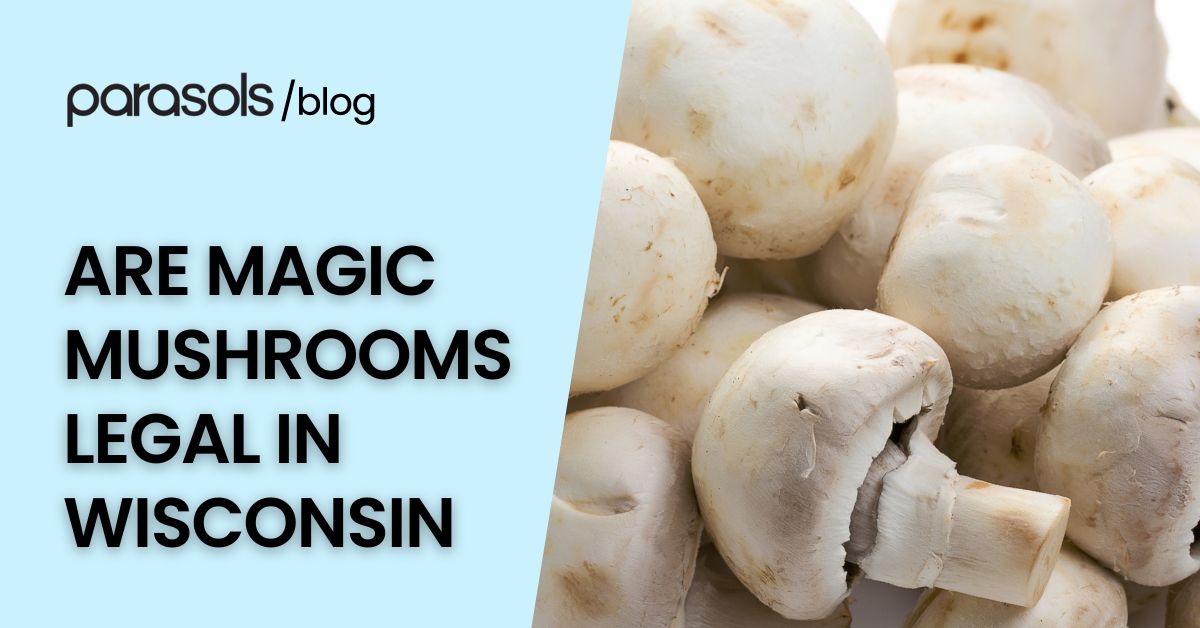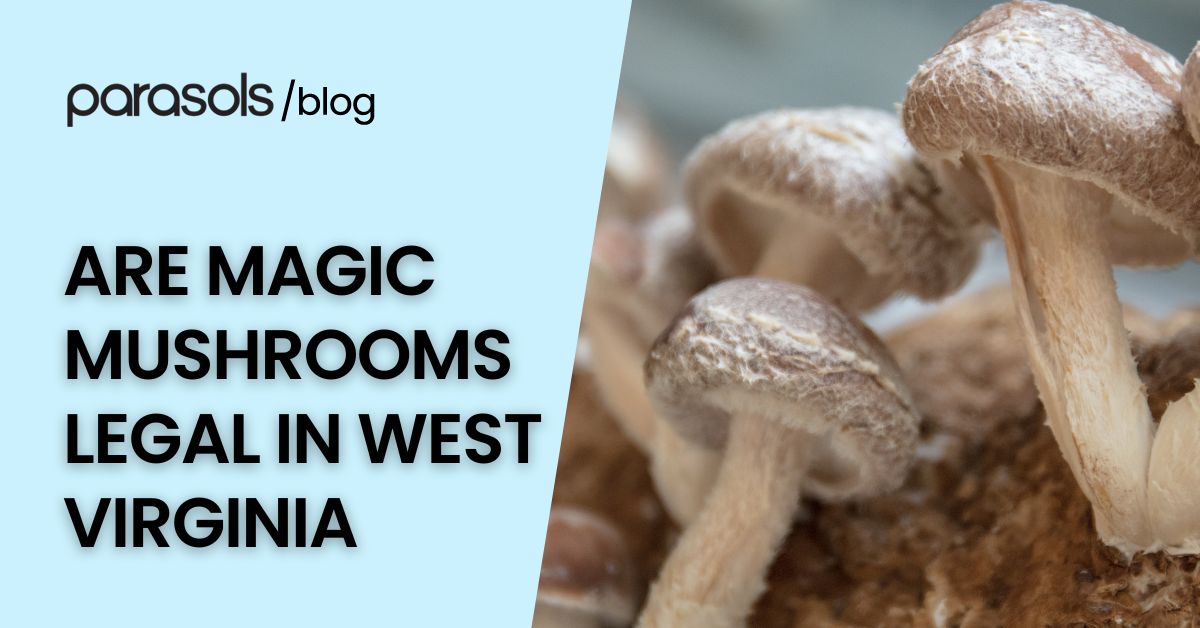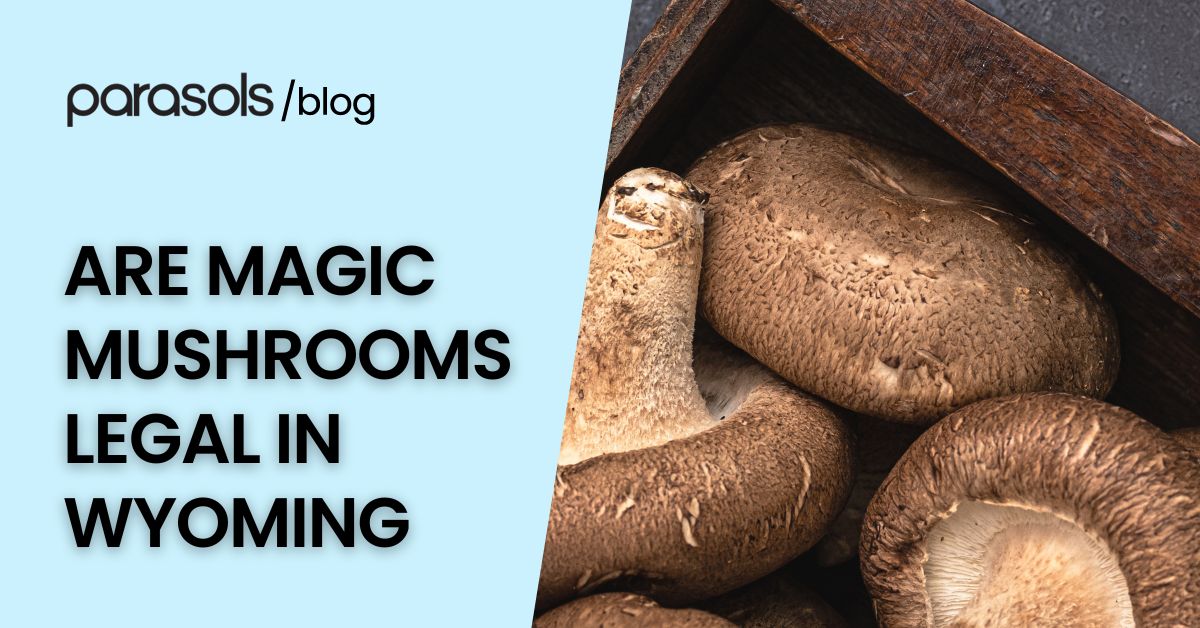Conversations around magic mushrooms are popping up more and more, whether it’s about their possible therapeutic benefits or the risks of getting caught with them. In Wisconsin, though, the story isn’t as simple as curiosity or wellness — it’s about strict laws, possession rules, and what the legal status really means if you’re caught with psilocybin mushrooms.
Key Takeaways
- Magic mushrooms are illegal in Wisconsin as a Schedule I substance.
- Psilocybin possession, cultivation, or use can lead to serious criminal penalties.
- No medical, therapeutic, or decriminalization measures exist in the state.
Overview on Magic Mushrooms
Magic mushrooms, also known as psilocybin mushrooms, are a type of psychedelic drug that many people associate with deep, mind-opening experiences. For some, they’ve been part of spiritual traditions for generations, while today researchers are looking closely at their treatment potential for things like depression and other mental health struggles.
The growing interest comes from their possible therapeutic benefits, but despite the excitement, their legal status in many states — including Wisconsin — still places them in the category of a schedule one substance, making them an illegal substance under strict laws.
Are Magic Mushrooms Legal in Wisconsin?

In Wisconsin, magic mushrooms are still illegal. That means psilocybin mushrooms are treated as a schedule one substance, just like other psychedelic drugs, and being caught with them — even in small amounts — can lead to serious penalties.
Possessing magic mushrooms isn’t viewed as a minor issue here; it can bring criminal charges, hefty fines, or even jail time. While some states are starting to decriminalize psilocybin or learn its therapeutic use through pilot programs, Wisconsin hasn’t taken those steps yet.
- For now, the state’s strict laws leave little room for personal use or medicinal potential.
Current Legalities on Shrooms in WI
Wisconsin has very clear rules when it comes to psilocybin mushrooms, and anyone curious about their legal status should know the details before even thinking about possession or use. The state’s laws are firm, and the consequences can be life-changing if you’re caught.
Classification as a Schedule One Substance
Psilocybin is officially labeled as a schedule one substance in Wisconsin, meaning the state sees it as having no accepted medical use and a high potential for misuse. This classification puts psilocybin mushrooms in the same category as certain other psychedelics and illegal drugs, setting the stage for how seriously possession is treated under the law.
No Medical or Therapeutic Exceptions
Unlike a few other states understanding psychedelic legalization, Wisconsin doesn’t recognize psilocybin for therapeutic use, medicinal potential, or mental health treatments. This means psilocybin assisted therapy or supervised use in healing centers isn’t available here, and state regulators haven’t moved toward creating programs or pilot programs like those seen in Oregon or Rhode Island.
The Grey Area of Mushroom Spores
Mushroom spores are a tricky subject in Wisconsin. While spores themselves don’t contain psilocybin, growing them into mushrooms does — and that crosses into illegal territory. Even though some people talk about spores being a legal loophole, cultivating them with the intent to produce psilocybin mushrooms can still result in criminal charges and serious penalties.
Legal Alternatives for WI Magic Mushrooms
Since magic mushrooms aren’t legal in Wisconsin, many people who are curious about their potential benefits end up learning other options.
While they don’t offer the same psychedelic experiences, these alternatives can still support mental health and well-being in safe and legal ways.
- Ketamine-assisted therapy – Unlike psilocybin, ketamine is approved for medical use and is already available in clinics across the country, including Wisconsin. It’s often used for depression and treatment resistant cases, giving people a legal pathway to study therapeutic benefits in a supervised setting.
- Mindfulness and lifestyle practices – Things like meditation, yoga, and even breathwork may sound simple compared to psychedelics, but many people find they provide real mental health benefits. These practices are legal, accessible, and can help reduce stress and improve emotional balance.
- Herbal and natural remedies – Adaptogens and plant-based supplements won’t create psychedelic effects, but they’re commonly used to support mood and overall mental wellness. For some, these “everyday” tools become an important part of their self-care routine.
- Healing centers in other states – While Wisconsin hasn’t moved toward psychedelic legalization, places like Oregon have opened the door to supervised psilocybin use. Some people travel out of state to access legal healing centers or participate in pilot programs where personal use is allowed under guidance.
-
Clinical trials and research studies – Researchers are continuing to study psilocybin and other psychedelics for therapeutic use. Joining a trial outside Wisconsin can give people a chance to learn, treatment potential legally while also helping science move forward.
Final Thoughts

Magic mushrooms may be gaining attention for their therapeutic benefits, but in Wisconsin the laws remain strict and the risks are real. For now, anyone interested in psilocybin use has to look at legal alternatives or keep an eye on how other states are moving forward with psychedelic legalization.
If you’d like to stay updated on shifting laws and pilot programs across the country, you can check the decriminalization tracker for the latest developments.
Frequently Asked Questions
Can you be charged for simply talking about or researching psilocybin in Wisconsin?
No, discussing or researching psilocybin isn’t a crime. The issue comes with possessing psilocybin mushrooms or mushroom spores with the intent to grow them. Many universities and researchers across the country are studying psilocybin’s therapeutic benefits, but in Wisconsin, personal experiments outside of approved research settings would fall under strict laws.
Do Wisconsin’s laws treat psilocybin mushrooms differently from other psychedelics?
Not really. Under state law, psilocybin is grouped with other psychedelics as a schedule one substance. This category also includes substances like MDMA and lysergic acid diethylamide (LSD), all of which are seen as having no accepted medical use and a high potential for abuse. That’s why possessing magic mushrooms is viewed as a serious offense with potential penalties similar to other illegal drugs.
Is there any chance of Wisconsin decriminalizing psilocybin soon?
At the moment, Wisconsin hasn’t introduced a house bill or pilot program to decriminalize psilocybin. While other states like Oregon and Rhode Island are experimenting with supervised use or state regulators learning therapeutic programs, Wisconsin has not made steps toward psychedelic legalization. That said, conversations about decriminalization are growing across many states, so future changes can’t be completely ruled out.
Can magic mushroom spores be legally sold in Wisconsin?
Spores themselves don’t contain psilocybin, which is why they’re often sold online. However, if state regulators find that spores are being used to cultivate psilocybin mushrooms, that changes the situation. Growing mushrooms from spores crosses into illegal territory, and the law treats it the same as possessing psilocybin — with the risk of criminal charges and even jail time.
What role does federal law play in Wisconsin’s approach to psilocybin?
Even if Wisconsin wanted to relax its stance, psilocybin is still considered an illegal substance at the federal level. This makes it harder for state lawmakers to create exceptions, since psilocybin remains a schedule one substance under the Controlled Substances Act. That’s one reason Wisconsin’s strict laws mirror federal guidelines so closely.



Leave a comment
This site is protected by hCaptcha and the hCaptcha Privacy Policy and Terms of Service apply.